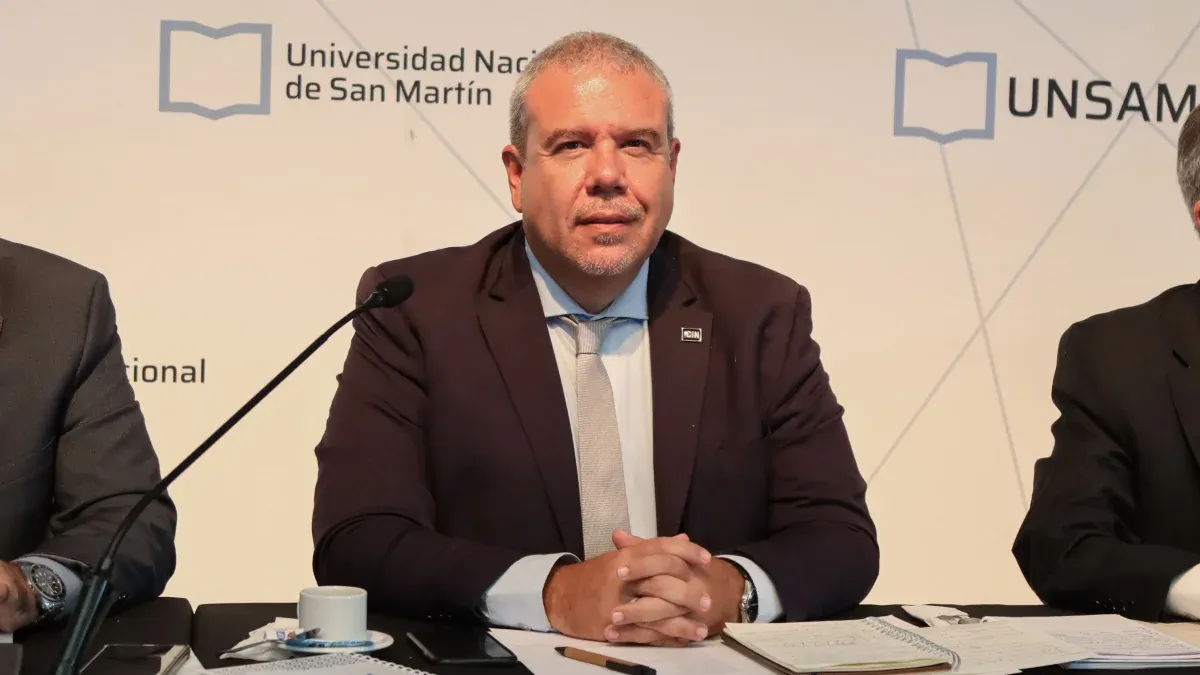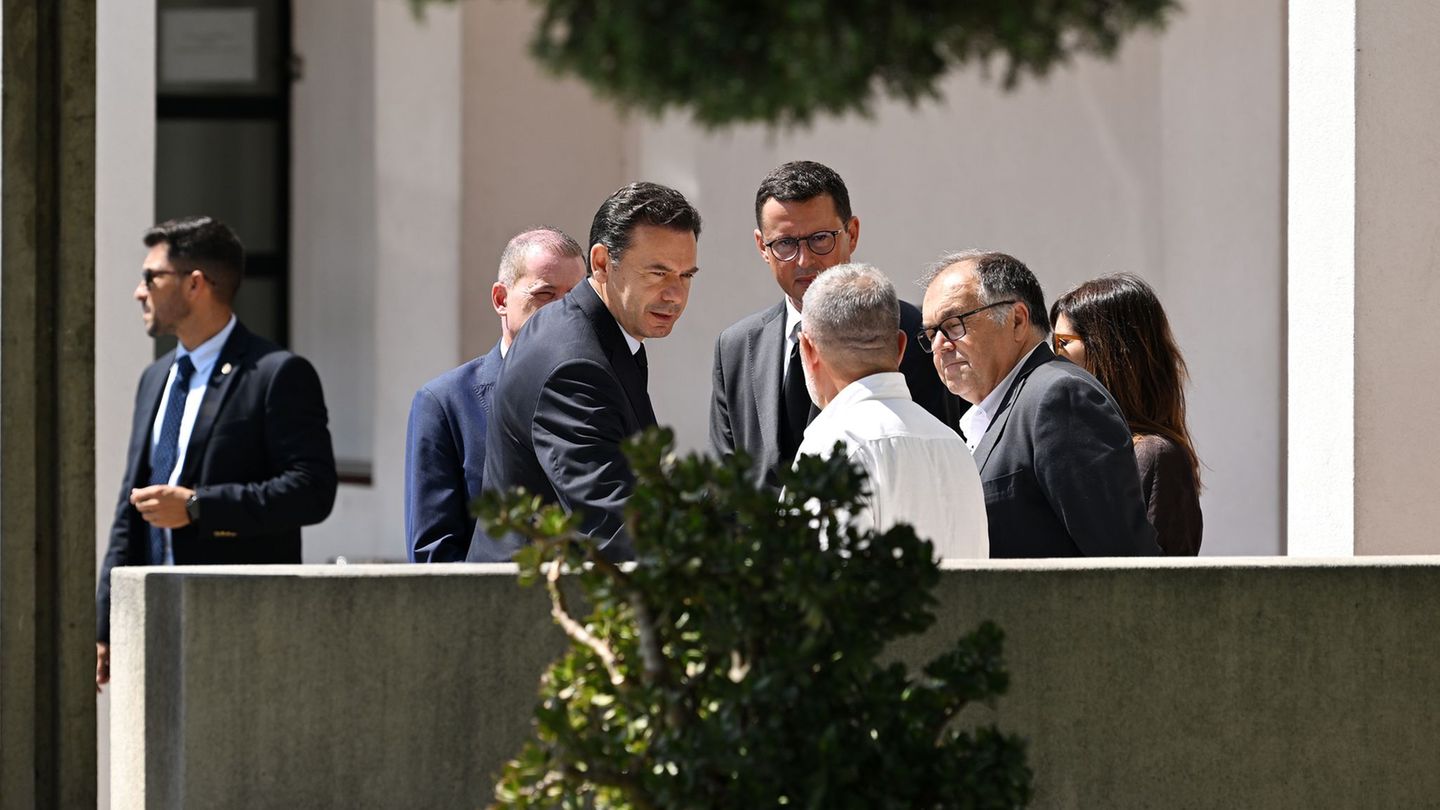The president of National Interuniversity Council (CIN) and rector of the National University of San Luis, Víctor Moriñigo, He maintained that “if the national government decrees the provincialization of the universities the next day, the Ministry of Education must cease to exist because its existence would no longer make sense because it will have nothing to do,” and added that in the nineties when they were transferred From national secondary schools and tertiary institutes to provincial ones, the Ministry of Education was popularly called “the ministry without schools.” “It would be crazy”; stated the university rector
“They no longer have the primary schools, secondary schools or tertiary institutes that were provincialized. If the universities are transferred, a Ministry of Education does not make sense,” he expressed in dialogue with Ámbito. In a telephone conversation with this medium, the rector of the National University of San Luis maintained that the transfer of the universities “it must be accepted by the provinces and at the same time the provincial legislatures must approve it”.
“Lastly, if I were governor and they proposed university provincialization, I would say to President Javier Milei: ‘Pass me the universities, but also the money necessary for their maintenance’; and after 10 minutes I also tell him to pass me the Afip because if the Nation can maintain the universities, neither can the roads or attack the fire in Córdoba as it should, that the Nation should stop collecting national taxes and that each province can fix itself as it can. “he questioned.
Catalytic march of reality
Moríñigo ratified the march in defense of public education next Tuesday. “In all provinces there will be a march in defense of public education, which will surely be a catalyst for other problems that exist in Argentina. “We will march without anger, without violence and preparing for the day after to find a solution to the educational problem,” said Moriñigo.
Respect for the possibility that, for example, retirees will join in claiming the veto of the Retirement Mobility Law, The academic said that “everyone is welcome, the march must be a catalyst for reality, we are not going to leave anyone out of the march to the National Congress.” “We do not close the door to anyone, I am not a cynic to close the door to anyone, be they politicians, unions, associations, who wish to defend public education,” he added.
Back to the nineties
In the midst of the conflict over the university budget, it was leaked that President Javier Milei’s team is analyzing the possibility of transferring university education to the provinces.
According to the journalist Lautaro Maislin of C5Nthe idea is to transfer them and “let the provinces be the ones to define whether they tariff.” “They choose their authorities, their study plans and expenses as they want, but then, they throw the bills at the Nation,” said a member of President Javier Milei’s small board.
The proposal contemplates that the State transfer minimum funds to the provinces, leaving each district to manage the rest of the resources. In this way, it opens the possibility of implementing a fee in universitiesif the state proposal is implemented, which would generate a change in the way these institutions are financed.
If the project comes to fruition, it would be a major setback for the finances of the provinces and could harm governors such as Axel Kicillof and the head of the City, Jorge Macri and other governors, who would be forced to assume a significant financial burden.
The idea is contemplated in the midst of a budget conflict with the universities that reached its highest point with the presidential announcement of the veto of the University Financing Lawvoted by both Chambers, which obliges the Executive to update the budget items with the objective of covering operating, research and university extension expenses. In addition, it establishes that every two months the Government should update the budgets of educational entities for inflation.
“They reaffirm that the veto is a fact and that it would come out after the joint negotiation. The march is on the 2nd, the veto has a limit until the 3rd to be published,” Maislin explained, in a conflict that does not seem to have an end.
Menemist projects
The government of Carlos Menem produced profound reforms in the educational system at all levels. Started in the early 90s, the most important are framed in the laws of: Law 24049 (Establishment Transfer Law), enacted in 1991, and complemented by Law 24195 (Federal Education Law) and Higher Education (1995)among other measures, constituted the most important educational decentralization measures that occurred in Argentina.
The transfer of secondary schools and tertiary institutes to the 24 provinces (the other transfers had occurred during the government of Arturo Frondizi and the dictatorships of 1966 and 1976) was carried out without any granting of nation budget to the jurisdictions, which provoked numerous criticisms from different sectors. The jurisdictions had to take material and administrative charge of the educational institutions in their territory, which generated inequality between the provincial systems in their financing possibilities and in access to resources due to lack of financing from the Nation.
For this reason, the Ministry of Education began to be called a “ministry without schools”. The transfer of schools to jurisdictions implied a notable multiplication and fragmentation of educational models in the country and highlighted the inequalities already existing in the national educational system.
Regarding the national universities, they were conflictive years, not only due to the limited budget but also due to the intention to reduce university autonomy based on the so-called decree 1111, by which the Ministry was established as an appeal court against the decisions of the universities. .
Source: Ambito
David William is a talented author who has made a name for himself in the world of writing. He is a professional author who writes on a wide range of topics, from general interest to opinion news. David is currently working as a writer at 24 hours worlds where he brings his unique perspective and in-depth research to his articles, making them both informative and engaging.




